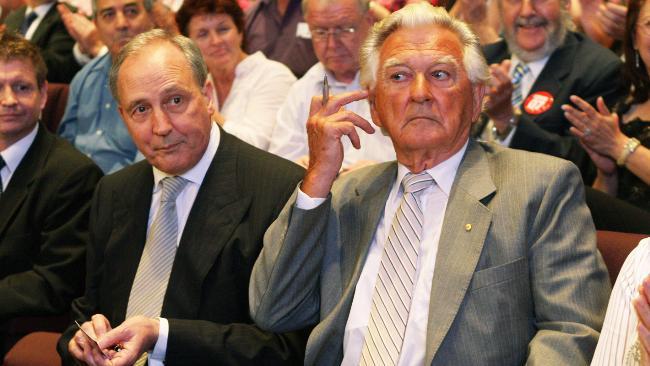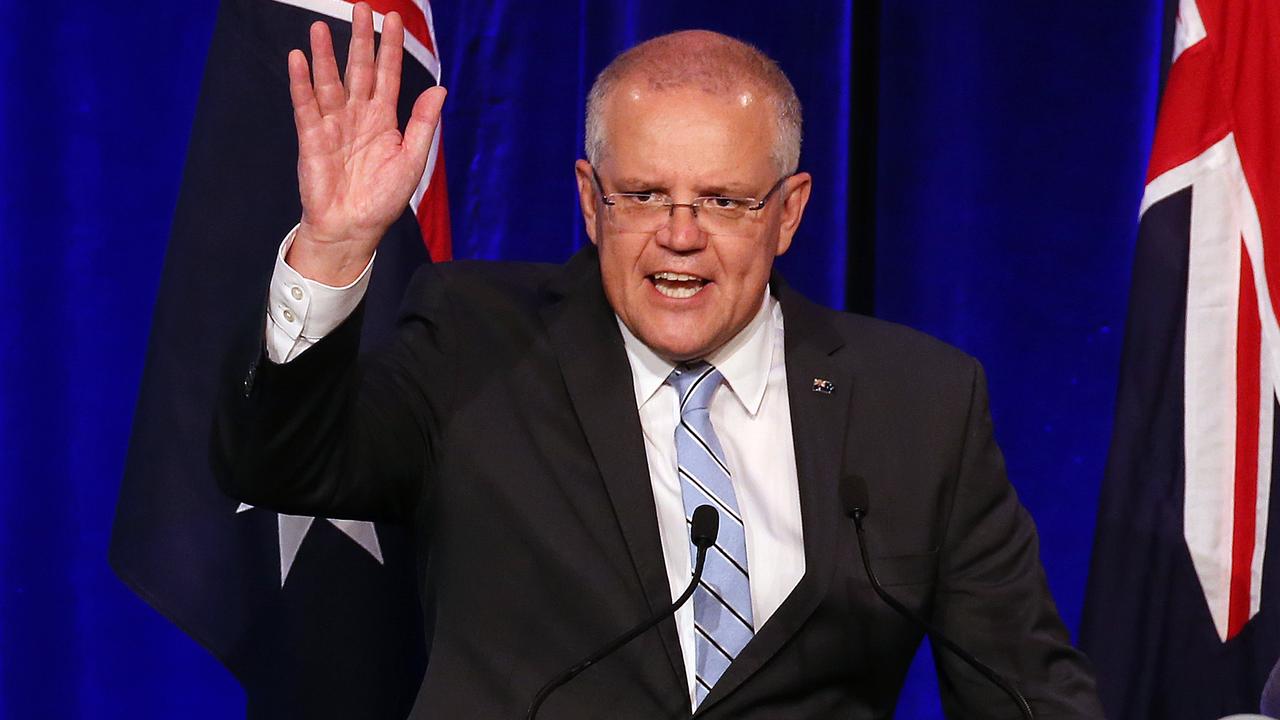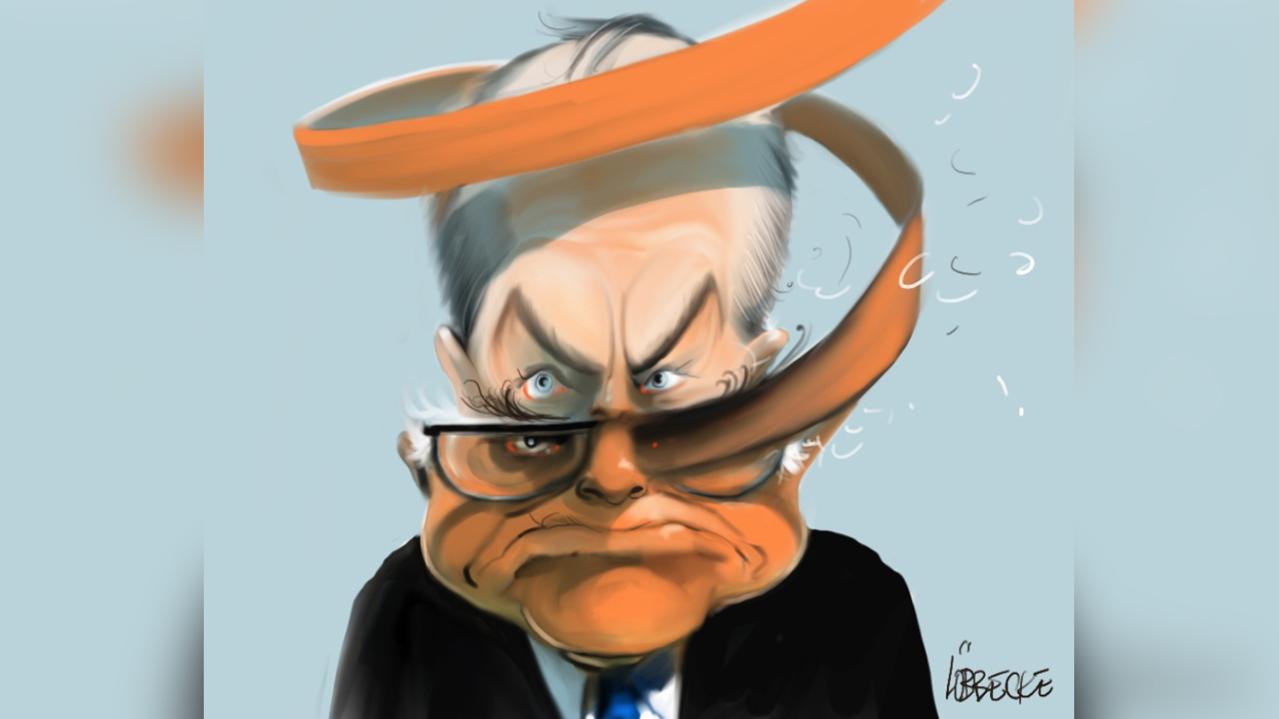Conviction lacking in the heirs to Hawke's legacy
THE contrast between Hawke's attempts to reform the economy and the Gillard government's efforts to price carbon are significant.

THE contrast between the Hawke government's attempts to reform the Australian economy in the 1980s and the Gillard government's efforts to price carbon are significant.
Not only did Bob Hawke have the advantage of voters believing he had strongly held convictions about what he was doing, his parliamentary team was seen as a quality line-up.
Labor likes to compare what it is doing today with Hawke's floating of the dollar and tariff reforms, as well as with Paul Keating's introduction of compulsory superannuation. But back then, Labor didn't flip-flop on those initiatives as Labor today has over what to do about pricing carbon. Not that Tony Abbott hasn't also flip-flopped repeatedly. The only leader with any climate change policy consistency is Malcolm Turnbull.
There are further contrasts between Labor today and Labor governments in the 80s and 90s. Gillard's administration is questionable for its quality, in terms of personnel and management skills. Failures across policy areas such as the pink bats installation, the Building the Education Revolution cost blowouts, and the problems with border security have added up to a loss of faith by voters.
Throw in the fact Julia Gillard talked Kevin Rudd into dumping his timeline on introducing an emissions trading scheme before pledging not to introduce a carbon tax days before the election, and it isn't hard to see why Labor is struggling in the polls.
The odds are certainly stacked against a government recovery before the next election, as illustrated by the short odds available on betting sites for an Abbott win.
But as much as senior business figures were scathing about the government at The Australian's business leaders forum on Friday, it will be those same business people who, two years from now, might be the government's saviour.
If Labor successfully implements its carbon tax, business won't like the idea of planning for it and then being required to rearrange their affairs for Abbott's rollback. It will be a case of endorsing the tax to stay in place as the lesser evil. Senior Liberal shadow ministers know this, which is why they are trying hard to kill off the tax before it becomes law. If they don't, Abbott's rollback may start to resemble Kim Beazley's Goods and Services Tax rollback pledge in the lead-up to the 2001 election.
But winning begrudging support from business is one thing; winning over voters is a whole other matter. For the electorate to return to Labor, the government needs to show it can competently administer its reforms, something it hasn't done so far.
Two years is time enough for that to change if the Labor government has the capacity to rise to the standard of the Hawke administration of the 80s.
While Hawke was constantly at war with the business community and the unions, not unlike difficulties Gillard is facing now, there was always respect for the capacities of the government.
That contrasts starkly with comments from the Transport Workers Union national secretary Tony Sheldon, on Australian Agenda on Sunday, calling for the head of Industrial Relations Minister Chris Evans, whom he described as incompetent.
The TWU took aim at Hawke and the ACTU repeatedly when the Accord was being negotiated, but that was a pure policy disagreement.
A colleague of mine made the point yesterday that voters aren't always good at separating "the medium from the message", an observation that encapsulates Gillard's difficulty selling her carbon tax in the current political environment. Conviction can get political leaders a long way when pushing an agenda. It worked for Hawke and it also worked for John Howard when he went about pursuing reforms the public might not necessarily like. (But Work Choices was a bridge too far.)
Gillard doesn't have conviction on her side given the public knows full well her turnaround on a carbon tax was born out of political necessity, not passionate advocacy.
The Greens required it and Gillard didn't want to be remembered as one of our shortest-serving prime ministers in history. It was a tactical victory that is now costing Labor big time in the longer term strategic showdown between now and the next election.


